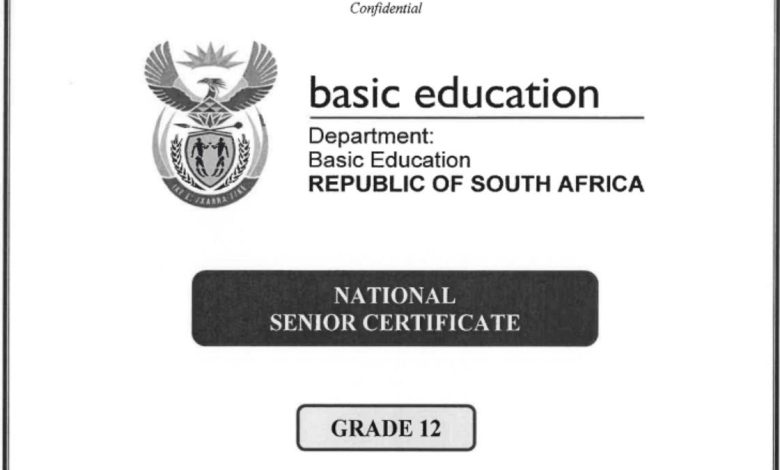Grade 12 Exam Past Papers – English Home Language

For Grade 12 learners, the English Home Language exam can be daunting. However, one of the most effective strategies for preparation is practicing with past papers. These papers not only provide insight into the exam structure and question types but also help in developing time management and exam techniques.

This guide will break down the exam structure, explain how to use past papers effectively, and provide useful study tips to ensure exam success.
Structure of the English Home Language Exam
The Grade 12 English Home Language exam consists of three papers, each assessing different skills critical to mastering the language. Here’s a quick breakdown of each paper:
| Paper | Time | Marks | Focus |
|---|---|---|---|
| Paper 1 | 2 hours | 50 | Reading Comprehension, Language in Context, Summary |
| Paper 2 | 2 hours | 50 | Literature (Poetry, Drama, Novel/Short Stories) |
| Paper 3 | 2 hours | 50 | Writing (Essay & Transactional Writing) |
Note: Each paper’s format and the number of questions may vary yearly, so it’s crucial to check the latest Department of Basic Education (DBE) guidelines before you begin studying.
Paper 1: Language in Context
Aim: To assess critical reading, comprehension, and language application.
What It Tests:
- Critical Reading & Inference: Ability to extract key ideas, identify tone, and detect bias.
- Visual Literacy: Interpreting graphs, advertisements, and cartoons.
- Summary Skills: Condensing large texts into concise summaries.
- Language Structures & Usage: Understanding vocabulary, punctuation, sentence structures, and figures of speech.
Time Allocation:
- Comprehension: 50%
- Summary: 20%
- Language: 30%
Study Tips:
- Practice with untimed comprehension exercises before timing yourself.
- Extract key points for summaries, and practice staying within the word limit.
- For language exercises, read aloud to check for grammar errors.
Pitfalls to Avoid:
- Don’t lift sentences directly for the summary.
- Be careful not to miss tone or register cues.
- Avoid providing opinions unless explicitly requested.
Paper 2: Literature
Aim: To test in-depth understanding of set works and the ability to analyze unseen poetry.
What It Tests:
- Literary Analysis: Understanding themes, characters, and symbolism.
- Evidence-Based Argumentation: Supporting analysis with quotes from the text.
- Comparative Thinking: Analyzing similarities and differences between works.
Time Allocation:
Allocate time proportionally across poetry, drama, and novels. Always leave 5-10 minutes at the end for revision.
Study Tips:
- Create a quote bank for each set work.
- Practice analyzing unseen poetry under timed conditions.
- Rework your answers using the memo to refine your higher-level responses.
Pitfalls to Avoid:
- Avoid retelling the plot—focus on analysis.
- Don’t quote long passages without explaining them.
- Always reference the text with page/line numbers.
Paper 3: Writing
Aim: To assess the ability to plan, draft, and edit original writing.
What It Tests:
- Idea Generation: The ability to brainstorm ideas and plan essays.
- Structure: Logical organization and clear paragraphing.
- Style & Tone: Using the correct tone and style for the audience and task.
Time Allocation:
- Planning: 5-10 minutes for mind maps and outlines.
- Writing: The main focus should be drafting.
- Editing/Proofreading: 5-10 minutes for final revisions.
Study Tips:
- Use planning templates and flashcards to familiarize yourself with different writing formats.
- Practice writing 20-minute micro-essays to build your speed and clarity.
- Make sure to proofread carefully for grammar and structure.
Pitfalls to Avoid:
- Don’t neglect the editing stage—proofreading is essential.
- Ensure that paragraphs are logically structured and connected.
Using Past Papers Effectively
Past papers are a valuable resource for exam preparation. Here’s how to use them effectively:
- Diagnose: Start by completing one paper untimed to get a feel for the structure.
- Practice Timed: Break the paper into sections and practice each under timed conditions to simulate the real exam.
- Mark with Memos: Compare your answers with the provided memos and identify areas of improvement.
- Error Bank: Keep track of recurring mistakes and focus on improving them in future practice.
- Weekly Rotation: Rotate your focus between each paper’s skills to ensure comprehensive preparation.
Common Mistakes to Avoid
- Paper 1: Avoid missing the word limit for summaries or going off-topic.
- Paper 2: Don’t simply retell the plot of the literature works; focus on analysis.
- Paper 3: Don’t skip the editing stage—proofread your writing for errors.
Additional Resources
For further support, check out these valuable resources:
- DBE Guidelines: Stay updated on the latest exam formats and set works.
- Mind the Gap Study Guides: These guides are tailored specifically for English HL learners.
- Grammar Guides: These are essential for polishing your language skills.
Check also: Grade 12 Exam Past Papers – Mathematics
By consistently practicing with past papers and reviewing your mistakes, you’ll see steady improvements in your performance. Make sure to follow a structured study plan, dedicate time for each paper’s skills, and track your progress. Download past papers, share them with your peers, and start preparing for exam success today!
For additional practice, explore downloadable past papers and memos available through official education portals.




